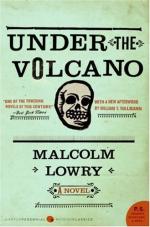|
This section contains 462 words (approx. 2 pages at 400 words per page) |

|
To understand how Lowry's novel evolved throughout a decade's constant and frustrating revisions from one addict's case history into what Philip Toynbee, coming on the book late in his career after missing it for fifteen years, calls "one of the great English novels of this century," it is necessary to leave aside alchemy and addiction, the Cabbala and black and white magicians. It is necessary even to forget Lowry's obsession that he was himself being written. For a decade during which the man knew all the miseries of Job, the artist prospered. Malcolm Lowry struggled with his book, but the struggle was as directive as a sculptor's and as strategic as a film cutter's. As his view of his material deepened, Lowry decided on a blocking-out technique, or something like it, as a way of discovering, exploring, developing his themes, of conveying their meaning, and, finally, of evaluating...
|
This section contains 462 words (approx. 2 pages at 400 words per page) |

|




